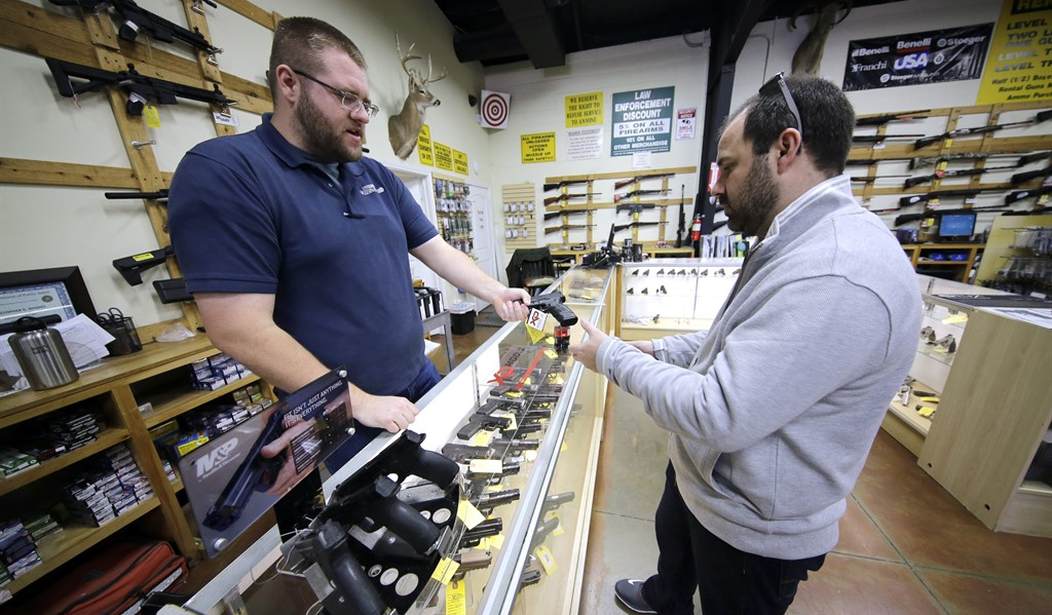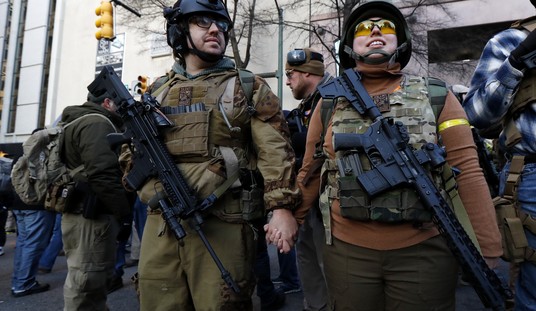A little more than a month ago a Ninth Circuit Court of Appeals panel put a halt (at least temporarily) to California's "1-in-30" law limiting gun purchases to a single firearm within a 30 day period. Though a U.S. District Court judge had ruled the law unconstitutional back in March, he granted the state's request for a stay and allowed the law to be enforced during its appeal, but the panel rejected the state's request to keep the stay in place. Since then, Californians have been able to buy as many guns as they want and can afford at one time, and now one of the Second Amendment groups involved in that litigation is aiming to take down the same restriction still in place in New Jersey.
The Firearms Policy Coalition announced on Friday that it, along with individual plaintiffs Matthew Struck and Daniel Francisco, is challenging the New Jersey statutes on Second Amendment grounds. In its complaint, FPC maintains that acquiring a firearm is an inherent part of the right to keep and bear arms, which makes sense. How can you keep or carry a gun if you're not allowed to obtain one?
FPC says if buying a gun is protected under the Second Amendment, it's up to New Jersey to demonstrate that their gun rationing law fits within the national tradition of gun ownership; something the 2A group argues is an impossibility.
N.J.SA. § 2C:58-3(i) provides, in pertinent part: “Only one handgun shall be purchased or delivered on each permit and no more than one handgun shall be purchased within any 30-day period . . . .”
N.J.A.C. § 13:54-1.9 provides, in pertinent part: “Only one handgun may be purchased or delivered on each permit to purchase.”
Individuals in New Jersey have a right to keep, bear, and use arms for all lawful purposes. That right includes but is not limited to buying, selling, and transferring firearms, including by purchasing more than one handgun in a 30-day period.
The Constitution contains no limitation on the frequency or number of arms that an individual may lawfully purchase or otherwise acquire—period, let alone in a 30-day period.
New Jersey’s OGM Ban is not part of the Nation’s historical traditionof firearms regulation.
The first OGM-type law in the Nation was not passed until 1975, and New Jersey’s OGM Ban was not passed until 2009.
New Jersey Attorney General Matthew Platkin could try to follow California AG Rob Bonta's defense of the "1-in-30" law, but if Bonta couldn't prevail in the gun control-friendly environs of the Ninth Circuit, Platkin shouldn't expect to fare any better in the Third Circuit.
Bonta had tried to argue that California's gun rationing law "does not infringe an individual’s right to 'keep' or 'bear' arms for self-defense and does not prohibit conduct protected by the text of the Second Amendment." In fact, Bonta claimed the Second Amendment wasn't implicated at all in California's gun rationing scheme.
In his ruling, U.S. District Judge William Q. Hayes, originally appointed to the bench by George W. Bush in 2003, rejected Bonta's argument that the "1-in-30" law doesn't violate the Second Amendment because it's not a total prohibition on gun purchases. Second Amendment-protected activity is still clearly implicated by the gun rationing law, which put the burden on California to justify its statute.
Bonta tried two different approaches: arguing both that the law fits within the "national tradition" of gun ownership, but also that California's law was a response to an "unprecedented societal concern" that the Founding generation never had to contend with: the "bulk purchasing" of firearms. Hayes found that argument unpersuasive as well, noting that some of the laws cited by California were racist statutes restricting the "sale and trade of firearms and gunpowder to Native Americans due to the risk of “]'Native violence.'”
Even if Hayes was willing to use such a clearly unconstitutional statute as evidence of a national tradition (and it doesn't seem like he was), the judge pointed out that the "1-in-30" law isn't directed to a subset of the people believed to pose a unique threat or danger to public safety. Instead, every Californian who wants to purchase more than one gun within a month's time is subject to the restriction, which hardly makes it analogous to the California law in question.
I'd say Bonta did the best he could to defend California's screwy gun rationing law. His biggest problem is simply that the law is indefensible under a fair reading of Heller and Bruen. I doubt Platkin's going to do a better job than Bonta, but I'm sure he'll waste a lot of time and taxpayer money to defend New Jersey's nearly identical one-gun-a-month scheme.









Join the conversation as a VIP Member